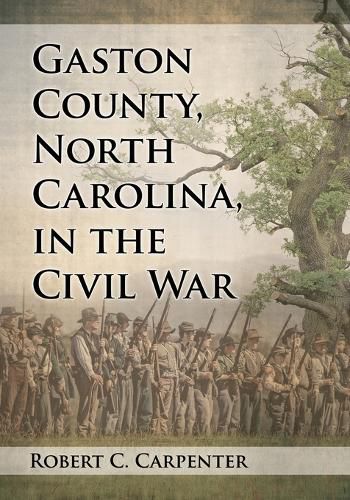Readings Newsletter
Become a Readings Member to make your shopping experience even easier.
Sign in or sign up for free!
You’re not far away from qualifying for FREE standard shipping within Australia
You’ve qualified for FREE standard shipping within Australia
The cart is loading…






This title is printed to order. This book may have been self-published. If so, we cannot guarantee the quality of the content. In the main most books will have gone through the editing process however some may not. We therefore suggest that you be aware of this before ordering this book. If in doubt check either the author or publisher’s details as we are unable to accept any returns unless they are faulty. Please contact us if you have any questions.
Often Civil War histories embody stories about politicians and generals. Ordinary soldiers, wives, mothers, children, slaves, farmers, merchants, Unionists, and deserters are only occasionally mentioned. To convey a comprehensive history is to include a wide array of sources.
Newly discovered material expand our understanding.. The 1863 Gaston County tax list defines people’s lives economically and socially, and diaries, soldier letters, and other previously unpublished documents tell the story of the war from each perspective. Wives and mothers, children, soldiers, politicians, deserters, and slaves communicate their feelings, reflect their fears and aspirations.
The 1863 Tax List transcription delineates what taxpayers owned, describe slaves by name, age and monetary value, and defines the ownership of luxury items. The tax document communicates a first of its kind portrait of a county. Soldiers’ and family letters, letters to the governor, cotton mill operations, political disagreements, and the lives of slaves are described in this microscopic study of a typical Piedmont county. The rationale for soldier enlistments, reasons for desertion, and economic struggles on the home front are examined.
Many engaging and newly discovered historical revelations await the reader. Your perception of the times and its people will be expanded through their words and actions.
$9.00 standard shipping within Australia
FREE standard shipping within Australia for orders over $100.00
Express & International shipping calculated at checkout
This title is printed to order. This book may have been self-published. If so, we cannot guarantee the quality of the content. In the main most books will have gone through the editing process however some may not. We therefore suggest that you be aware of this before ordering this book. If in doubt check either the author or publisher’s details as we are unable to accept any returns unless they are faulty. Please contact us if you have any questions.
Often Civil War histories embody stories about politicians and generals. Ordinary soldiers, wives, mothers, children, slaves, farmers, merchants, Unionists, and deserters are only occasionally mentioned. To convey a comprehensive history is to include a wide array of sources.
Newly discovered material expand our understanding.. The 1863 Gaston County tax list defines people’s lives economically and socially, and diaries, soldier letters, and other previously unpublished documents tell the story of the war from each perspective. Wives and mothers, children, soldiers, politicians, deserters, and slaves communicate their feelings, reflect their fears and aspirations.
The 1863 Tax List transcription delineates what taxpayers owned, describe slaves by name, age and monetary value, and defines the ownership of luxury items. The tax document communicates a first of its kind portrait of a county. Soldiers’ and family letters, letters to the governor, cotton mill operations, political disagreements, and the lives of slaves are described in this microscopic study of a typical Piedmont county. The rationale for soldier enlistments, reasons for desertion, and economic struggles on the home front are examined.
Many engaging and newly discovered historical revelations await the reader. Your perception of the times and its people will be expanded through their words and actions.